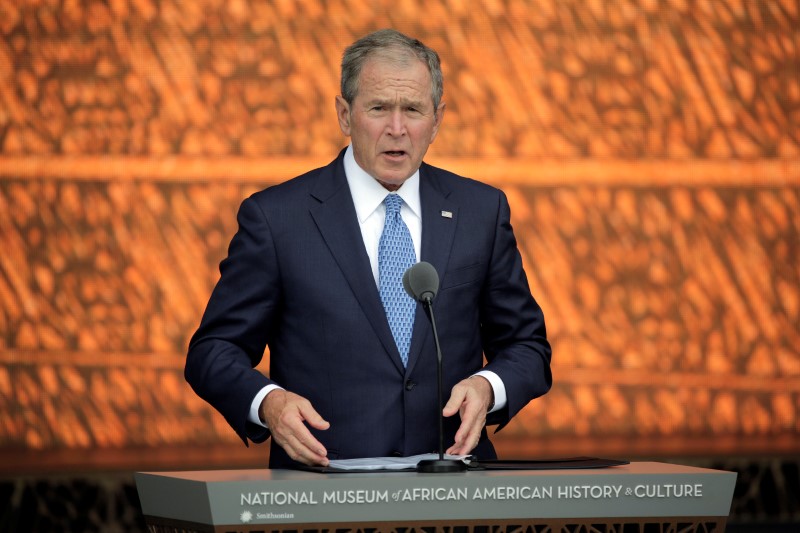Investing.com’s stocks of the week
WASHINGTON (Reuters) - Former Republican U.S. president George W. Bush diverged sharply from Donald Trump's new administration on Monday, saying he supported a welcoming immigration policy and praising the media as "indispensable to democracy."
In a wide-ranging interview with NBC's "Today" show, Bush also said he did not know if a special prosecutors was needed to investigate contacts between Trump associates and Russia but added, "We all need answers."
Bush, in some of his first televised comments since Trump took office, was asked if he had seen signs that Trump was trying to close the rift in the U.S. electorate after his divisive campaign against Democrat Hillary Clinton. He acknowledged that his own presidency from 2001 to 2009 began after a contentious election but that it was "hard to compare times."
He said that Trump is still in the early stage of his presidency and that Americans have "got to take the man at his word."
Asked whether he supported Trump's travel ban on people from seven majority Muslim countries, Bush said, "I am for an immigration policy that is welcoming and that upholds the law."
Bush, whose presidency was shaped by the Sept. 11, 2001, al Qaeda attacks on America, also called for religious tolerance.
"One of our great strengths is for people to be able to worship the way they want to or not worship at all," he said.
After the attacks, Bush had made a point of supporting Muslims and praising Islam's teachings as peaceful.
Trump has branded some news outlets as "the enemy of the people" but Bush said: "I consider the media to be indispensable to democracy, that we need an independent media to hold people like me to account," he said.
"It's important for the media to call to account people who abuse their power."
He said that during his presidency he tried to persuade Russian President Vladimir Putin to accept the concept of an independent news media. "It's kind of hard to tell others to have an independent, free press and we're not willing to have one ourselves," Bush told NBC.
Trump, the first Republican president since Bush left office, won the November presidential election after besting 16 other Republican candidates for the party's nomination, including Bush's brother Jeb.
His victory came amid lukewarm backing from establishment wing of the party as prominent Republicans, including Bush and his father, former president George H.W. Bush, shunned him or offered lukewarm support.
